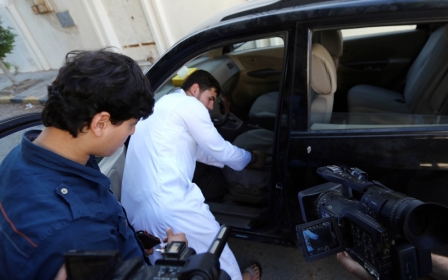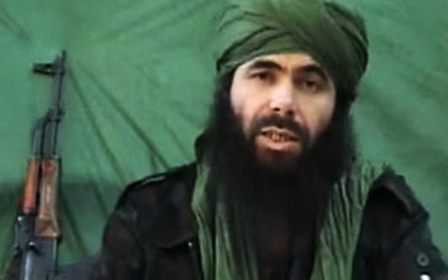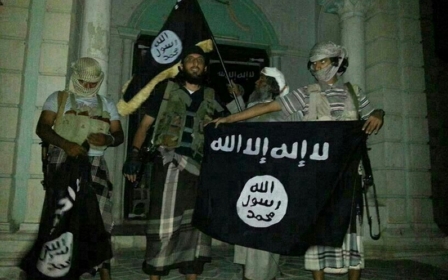US jury convicts Saudi exile over role in 1998 bombings
A New York jury convicted Saudi exile Khalid al-Fawwaz on Thursday over the deadly 1998 al-Qaeda bombings of US embassies in East Africa.
Prosecutors described 52-year-old Fawwaz as one of Osama bin Laden's most trusted lieutenants who conspired with al-Qaeda across three continents for nearly a decade.
The verdict followed a five-week trial in a US federal court, practically in sight of where the former Twin Towers stood before they were destroyed by al-Qaeda in the 9/11 attacks.
The jury found him guilty on four counts of conspiracy to kill Americans and destroy property on the third day of deliberations.
His conviction brings to 10 the number of defendants tied to the bombings in Kenya and Tanzania who have been convicted at trial or pled guilty in New York.
Fawwaz now faces life in a US prison when sentenced on May 21. Arrested in London in September 1998, he has already spent 16 years in custody.
Manhattan attorney Preet Bharara welcomed the verdict, saying that the Fawwaz had played "a critical role for al-Qaeda in its murderous conspiracy against America."
"Fawwaz was one of Osama bin Laden's original and most trusted lieutenants," he said.
Prosecutors said Fawwaz led one of al-Qaeda's first training camps in Afghanistan, helped lead a militant cell in Kenya and spent years "helping craft and spread" the group's message from London.
Bharara described Fawwaz as bin Laden's media advisor in the British capital, where he helped Western journalists interview the al-Qaeda leader in Afghanistan and disseminated his 1998 religious decree exhorting supporters to kill Americans around the world.
It was that directive that preceded the August 1998 bombings, which killed 224 people and wounded around 5,000 others.
Bhara added that one of Fawwaz’s jobs was to assist in spreading bin Laden's threats against the US around the world.
"Murderous words lead to murderous action," assistant US Attorney Nicholas Lewin said to jurors.
Of stocky build and with a long gray beard, Fawwaz attended his trial in a neatly pressed white tunic and a silk white prayer hat.
Defence lawyer Bobbi Sternheim told the opening of the trial that her client was nothing more than a "calm and serene" man who dedicated his life to peaceful reform in his corrupt homeland.
She delivered a lengthy history lesson about the US-sponsored “jihad” to expel Soviet troops from Afghanistan in the 1980s and the corruption that he was allegedly determined to end in Saudi Arabia.
She said he had "never" shared the violent views of bin Laden and al-Qaeda, was never a member of al-Qaeda and was only interested in peaceful reform in Saudi Arabia.
She added that he went to London with his wife on a honeymoon and to study business English.
Fawwaz fought a 14-year battle against extradition before being sent to the United States to stand trial.
Two of the other 10 defendants convicted over the 1998 embassy bombings have been jailed for life in the last five months alone.
Abu Anas al-Libi, a Libyan man accused over the bombings, died on 2 January just days before he was to stand trial in New York.
British preacher Abu Hamza, 56, was sentenced in January and bin Laden son-in-law Sulaiman Abu Ghaith, a former Al-Qaeda spokesman, was jailed last September.
New MEE newsletter: Jerusalem Dispatch
Sign up to get the latest insights and analysis on Israel-Palestine, alongside Turkey Unpacked and other MEE newsletters
Middle East Eye delivers independent and unrivalled coverage and analysis of the Middle East, North Africa and beyond. To learn more about republishing this content and the associated fees, please fill out this form. More about MEE can be found here.




